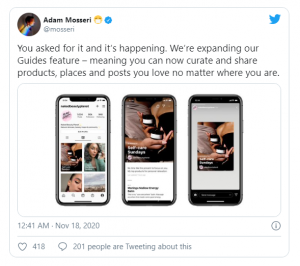Organic (non-paid) search is the largest single source of visits for most B2B websites. The majority of sites generate between 40% and two-thirds of their total traffic from search. Making sure your site is as highly visible as possible in search and maximizing visits requires professional SEO help—whether that comes from inside your company, or from an expert SEO consultant or agency.
If you’re hiring SEO expertise from the outside, how do you make sure you’ve found the best expert or agency for your needs?

First, ask other business owners and marketing leaders, in your network or your favorite LinkedIn group, for references. These are often your best leads.
Second, do some online research. But beware of guides written by SEO professionals that are really more about why you should hire them than about making the best choice. (Since I’ve now left the consulting world, this post is my most objective guidance).
Third, once you have a short list of SEO consultants or agencies to consider, ask them the following 15 questions to help ensure you select a resource who can both meet your needs and is someone you’ll enjoy working with.
1) What are the most important factors in search engine ranking, and how will you help me get better results?
This isn’t really a question of knowledge (any experienced SEO pro should be able to answer without fumbling for words). Rather, it’s question designed to get at the consultant’s communication skills. Can they provide not only an accurate explanation, but also answer in a way you understand clearly? Or do they excessively throw out jargon and acronyms?
Good answer: something about how two factors—relevance and authority—form the fundamental underpinnings of search ranking; something about the hundreds of individual elements Google and other search engines use in determining rank; something about the three pillars of SEO (technical, content, and off-page); and perhaps something about how certain fundamental practices remain constant (e.g., writing to solve specific problems for specific types of people) even as search engine algorithms continually evolve.
Bad answer: anything that implies 1) they don’t really know; 2) they may know but are unable to explain in terms that you understand; or 3) (worst of all) they may or may not know, but don’t want to tell you (e.g., they have “secret techniques,” just trust them).
2) Can you provide success stories and references?
Any reputable SEO pro should be able to point to examples both of ranking success (e.g., if you’re looking for a sales management guru, is there any choice other than Ken?) as well as names of individuals you can contact who will tell you about their results and experience in working with this consultant.
Please don’t ask for a client list, however. Very few businesses of any type will provide such a list; too big of competitive risk.
3) What types of online tools do you use?
There are a wide range of tools to help SEO professionals work more efficiently and effectively, from rank tracking, keyword research, and link building to analytics, competitive benchmarking, and “all-inclusive suite” type tools.
Good answer: a response indicating the person uses a variety of tools for different functions. There are dozens of specific tools that could be mentioned, but popular free tools like Google Analytics and Google Search console should be on the list.
Bad answer: anything that sounds ignorant or evasive.
4) How do you approach on-page SEO?
The quality and relevance of your site’s content is arguably the single most important factor in garnering high search ranking. High-quality backlinks and strong technical SEO will do little for weak, thin, or unfocused content.
But a book full of excellent content would still be difficult to get value from if it had no chapter titles, table of contents, or index. On-page SEO functions much like those elements in a book, helping your visitors (and search engines) make sense of the structure of the site, and determining which subjects are most important on each page.
The techniques of on-page optimization haven’t changed a great deal in the past five years, with a couple of notable exceptions. First, the meta keywords tag (at one time a valuable but widely abused element in determining search rankings) no longer has any value. Most SEO practitioners and tools now ignore it (as do the major search engines).
Second, search engine algorithms have gotten much more sophisticated in semantic search. This means they are better at recognizing synonyms (e.g., that “cars,” “motor vehicles” and “automobiles” all mean pretty much the same thing) and search intent (e.g., if you’ve been doing a lot of music-related searches, you may get results for the band when searching “cars” rather than autos). Keywords are still important, but keyword density matters less than it used to.
Best answer: something about incorporating all elements of on-page, from content, headings/subheadings, and internal links to navigation, the meta title tag, image alt tags, and page URLs—as well as developing high-quality, visitor-focused content that answers specific questions and addresses specific search intent.
Good answer: at least a subset of the above.
Bad answer: anything about keyword stuffing or other manipulative practices.
5) How do you approach link building?
This area has changed greatly over the past several years. At one time, building lots of links through low-quality “directories” that few humans ever actually used could boost search rankings. Today, such practices are not only ineffective, they are very likely to lead to search penalties.
Google and the other major search engines now place much more emphasis on link quality than link quantity. Your SEO professional should use tactics that reflect this.
Good answer: something about focusing more on link earning than on link building. Generally done through creating high-quality content and developing relationships with influencers who will link to it and share it across their social media networks. This can also incorporate approaches like media relations; ; competitive backlink analysis; building links directly in high-quality human-edited directories; and guest-blogging on popular, influential sites.
Bad answer: any approach still focused on quantity over quality. Any answer that implies manipulation or attempts to “fool” the search engines. Any answer that’s excessively evasive or implies the use of “secret” link building techniques. And worst of all, buying links.
6) How do you approach technical SEO?
This aspect of SEO is in some ways much simpler than in the past. WordPress and most other popular content management systems now produce clean, search-friendly HTML code out of the box. Plugins like Yoast SEO make the “science” SEO easier. That said, an SEO professional should certainly be able to understand and articulate topics like XML sitemaps, creating redirects, and dealing with duplicate content issues.
The key elements of SEO also vary somewhat by business type. Rich snippets, for example, are very important for consumer ecommerce site SEO, but don’t matter much for enterprise B2B technology products.
Good answer: an explanation of sitemaps, page load speed factors, a strategy and tools for identifying and fixing broken external links and internal 404 errors, checking for crawl errors using Google Search Console and Bing Webmaster Tools, avoiding duplicate content problems, and other aspects of technical SEO.
Bad answer: ignorance of technical SEO topics at one extreme, or portraying technical SEO as much more complex and mysterious than it actually is at the other.
7) How do you measure success?
Ultimately, SEO is about driving business success by attracting more, relevant visitors to your site. But there several interim steps on that journey tied directly to SEO efforts. Measurement should include most if not all of these metrics:
- Change over time in search rank for top targeted keyword phrases.
- Visits to top pages from search.
- Total keyword phrases driving traffic.
- Total traffic from organic search.
- Search traffic as share of all website traffic.
- Ranking on targeted keyword phrases compared to top competitors.
- Conversions (leads or sales) attributable to search.
Good answer: one which includes most or all of the metrics above, plus possibly other meaningful measures.
Bad answer: too narrow of a focus on one or a few metrics. Garnering top rankings for one or a few low-volume keyword phrases your buyers are unlikely to ever use is an “easy win” for an SEO pro, but doesn’t move the needle for your business.
8) How will you report results?
The format of reporting (PDF, Excel file, PowerPoint presentation) matters less than the content and clarity. Ask your prospective SEO consultant or agency to provide you with a generic sample report so you see what type of information is included and how it is presented. In addition to the SEO metrics above, monthly reporting from your SEO resource should include measures like:
- Total site traffic;
- Sources of traffic;
- Most frequently viewed pages;
- Top companies/organizations visiting your site (excluding ISPs);
- Conversions; and
- Sources of conversions.
Another important topic to inquire about is the data sources used to produce the report. This may include various analytics, monitoring, and keyword rank tracking tools. But in most cases, Google Search Console and Google Analytics (GA) will be among the sources used.
GA measures often include extraneous visits like bot traffic and visits from dodgy referral sites. If these are not filtered out, you’ll get a distorted picture of what’s really happening on your site. Ask your SEO professional or agency how they use segments and filters to exclude bot traffic, create accurate views of search and social media traffic, and identify top-visiting organizations to your site.
Good answer: a basic list of metrics reported each month (including some or all of the above), plus openness to customizing the report sections and format for your needs. The report should also ideally include a “quick read” executive summary of the results, plus action-item recommendations for ongoing improvement.
Bad answer: a report that’s thin on data, excessively technical, and/or not actionable.
9) How will we communicate?
In order to continually improve the quantity and quality of engagement on your website, it’s essential to get guidance from your SEO pro. What’s working? What’s not? What’s next?
Depending on your own skills and interests, you may want your SEO resource to provide “fishing lessons” as well as fish. If you are interested in taking on some of this work yourself, ask your prospective SEO partner if they are willing to teach and coach you as well as delivering services directly.
Good answer: an offer to set up one or more (depending on the stage of the relationship and level of SEO activity) phone conversations or online meetings each month to review progress, answer your questions, discuss ideas and recommendations, and walk through action items. You may not want or need to know every detail of the SEO efforts, but never want to feel that you are in the dark about any important matters either.
Bad answer: again, any response that is evasive, unclear, or unhelpful.
10) How do you conduct keyword research?
Although search engine algorithms are becoming more sophisticated about semantic search, as noted above, keyword phrases still matter. Your SEO pro should have a process in place for helping you to identify promising keyword phrases to use in your content planning efforts.
Good answer: using any of a variety of tools and an established process to help identify keyword phrases that are 1) relevant to your business (and most importantly, to your prospective customers); 2) have reasonably high monthly search volume; and 3) have reasonably low competition (i.e., you have a realistic chance of ranking for these). This should also be a collaborative, iterative process; the SEO pro may do the bulk of the technical work, but you have a role to play in applying judgment to keyword short-lists to select the best phrases.
Bad answer: anything that sounds evasive, secretive, or ad hoc.
11) What are your costs and pricing structure?
As with any business purchase, your decision should ultimately come down to value rather than price. That said, it’s important to find a provider that fits your budget, and to have predictable costs without unpleasant “surprise” fees.
So how much should you expect to pay? According to Entrepreneur magazine, “You need to know how much you’ll be charged…and also whether the consultant gets paid hourly, by retainer or by project…Most contract projects (cost) between $ 1,000 and $ 7,500.” Ongoing monthly retainer costs range from a few hundred dollars for small businesses to $ 5,000 or more per month on the higher end, while “the most common hourly rates (range) from $ 76 to $ 200.”
Good answer: a price you can afford, flexibility in terms of the timing of work to meet your budget, and clear project and/or hourly rates. There are a lot of variables here, but your prospective provider should put you at ease in discussing your options and associated costs.
Bad answer: pricing that seems out of line given your needs, or is opaque and unpredictable. Some SEO firms and consultants offer performance-based pricing, which can sound attractive: you pay for actual results rather than time. This isn’t necessarily bad, but be very careful with this: again, high rankings for obscure terms are easy to achieve, but don’t ultimately deliver value to your business.
12) What types of businesses do you typically work with?
Although some elements of SEO (high-quality, differentiated content; authoritative backlinks; clean technical structure) are common across any type of SEO, there are differences between optimizing sites for local SEO for businesses (e.g., restaurants, bars, specialty retailers, consumer services) that rely on foot traffic or customers within a limited geographic area versus consumer ecommerce SEO (high competition, duplicate content, need to drive purchases) versus B2B SEO (content-driven, generate leads moreso than sales).
Depending on business type, different tactics and factors like online reviews, local directory listings, rich snippets, guest blogging, and social networking may be more or less important in impacting search rankings and traffic.
Good answer: the provider may experience across different sectors, but specializes in working with businesses like yours. They understand the SEO factors most important to your type of business (local, ecommerce, B2B) and can articulate these in a manner you understand and feel comfortable with.
Bad answer: “we do it all.” It’s not impossible, but is unlikely, any individual can truly excel across these different types of SEO (think of Michael Jordan’s baseball career). An SEO agency may be able to provide these different skillsets, but make you are working with the right individuals for your type of business. Worst answer of all: “it doesn’t matter what type of business you have, all SEO is the same.”
13) How can you help with conversion rate optimization?
Driving targeted traffic to your website is only half the battle; you also need your visitors to take some sort of specific action (buy an item, download a white paper, register for a webinar, subscribe to your newsletter, etc.) after they arrive.
- Conversion rate optimization (CRO) is the art and science of, among other elements:
- Developing strong calls to action;
- Driving traffic to your landing pages;
- Using pop-ups;
- Optimizing the design of landing pages including navigation (minimal), colors, text, form design, images, social proof/trust, and action buttons;
- Testing all landing page components; and
- Creating goals and tracking outbound clicks in Google Analytics.
A good answer is one that gives you confidence your prospective SEO resource understands the basic tactics and importance of CRO; a bad answer is one that doesn’t.
14) What else can they bring to the table?
In addition to understanding SEO and CRO, some consultants and agencies can also provide services in areas like content strategy / editorial calendar planning, content (visual, written, video) development, social media optimization / consulting, guidance on content repurposing, and other services.
You may or may not need those ancillary services. Still, all of these tactics can impact SEO success in some way, so it’s a great idea to discuss with your potential SEO partner what they are able to provide, which elements you may want to handle, and—possibly—recommendations of other individuals to add to the team to provide talent in select areas.
A good answer, again, is one that makes you feel comfortable you’ve got all of your bases covered, and your SEO pro at least understands how these pieces fit together, if not direct expertise in specific areas. A bad answer is one which leaves you feeling uncomfortable that you may have unaddressed gaps or that the SEO resource doesn’t grasp the importance of all these pieces to overall SEO success.
15) How do you stay current?
Again, while some basic elements of SEO (high-quality content and links) remain constant in their importance, Google (along with the other major search engines) is constantly updating its core search ranking algorithm. These updates impact the relative importance of and best practices for different factors in search: how to approach keywords, which meta tags matter, which link-building methods are effective/ineffective/harmful, new technical SEO elements, and more.
Consequently, your prospective SEO expert should be able to articulate how he/she/they stay current on these continual changes.
Good answer: some combination of:
- Reading the leading search blogs;
- Attending (and possibly even presenting at) at conferences;
- Participating in online SEO forums;
- Running experiments on non-client websites; and
- Other methods of staying current.
Bad answer: nothing ever really changes. The same things that worked 10 years ago still work today. (Don’t walk, run away!)
Finding the best SEO resource for your specific business and needs can be a challenging, but important decision. Asking your network for references is a great place to start. But also do online research, and ask the right questions (like those above) to assure you are hiring not only a knowledgeable and reputable SEO professional or agency, but also one that meets that fits your needs and is comfortable to work with.
Digital & Social Articles on Business 2 Community(88)








